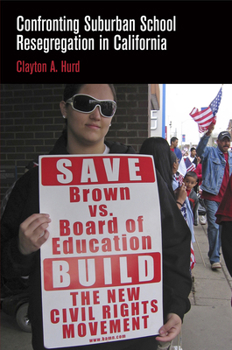Confronting Suburban School Resegregation in California
(Part of the Contemporary Ethnography Series)
The school-aged population of the United States has become more racially and ethnically diverse in recent decades, but its public schools have become significantly less integrated. In California, nearly half of the state's Latino youth attend intensely-segregated minority schools. Apart from shifts in law and educational policy at the federal level, this gradual resegregation is propelled in part by grassroots efforts led predominantly by white, middle-class residential communities that campaign to reorganize districts and establish ethnically separate neighborhood schools. Despite protests that such campaigns are not racially, culturally, or socioeconomically motivated, the outcomes of these efforts are often the increased isolation of Latino students in high-poverty schools with fewer resources, less experienced teachers, and fewer social networks that cross lines of racial, class, and ethnic difference.
Confronting Suburban School Resegregation in California investigates the struggles in a central California school district, where a predominantly white residential community recently undertook a decade-long campaign to "secede" from an increasingly Latino-attended school district. Drawing on years of ethnographic research, Clayton A. Hurd explores the core issues at stake in resegregation campaigns as well as the resistance against them mobilized by the working-class Latino community. From the emotionally charged narratives of local students, parents, teachers, school administrators, and community activists emerges a compelling portrait of competing visions for equitable and quality education, shared control, and social and racial justice.




